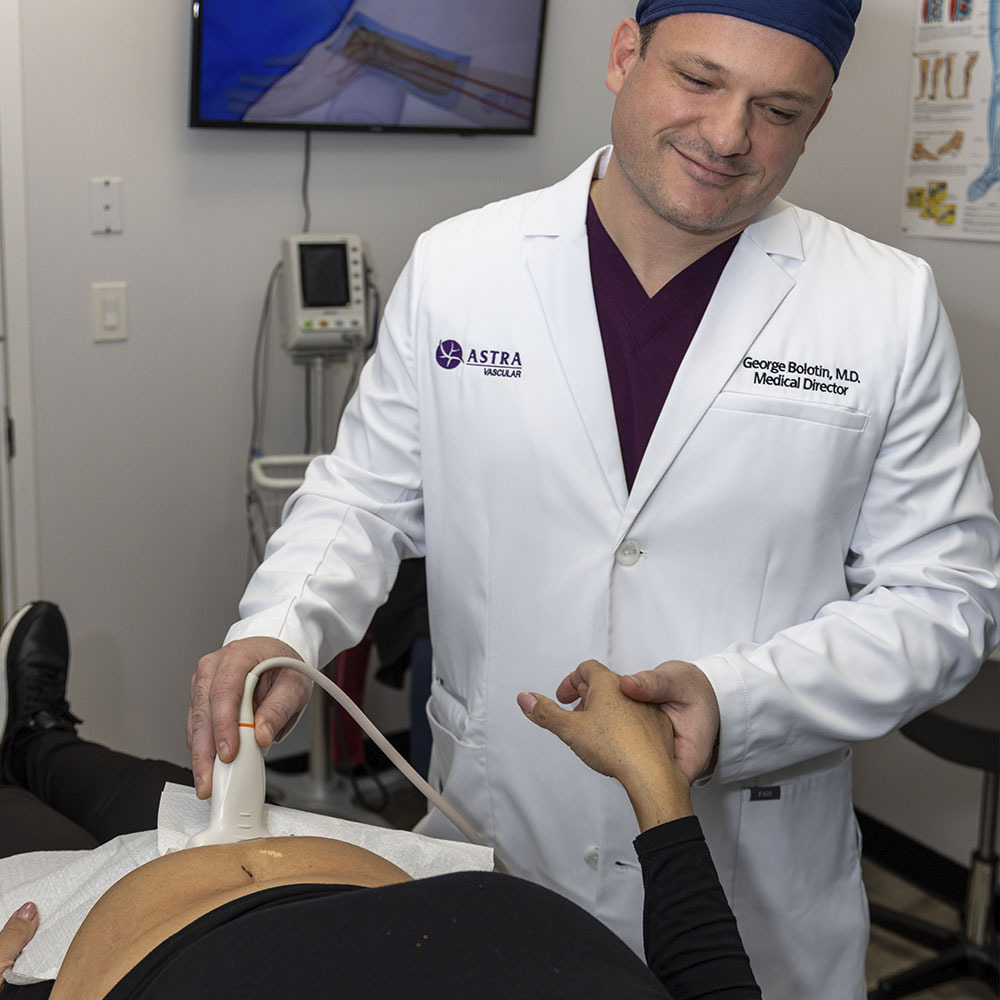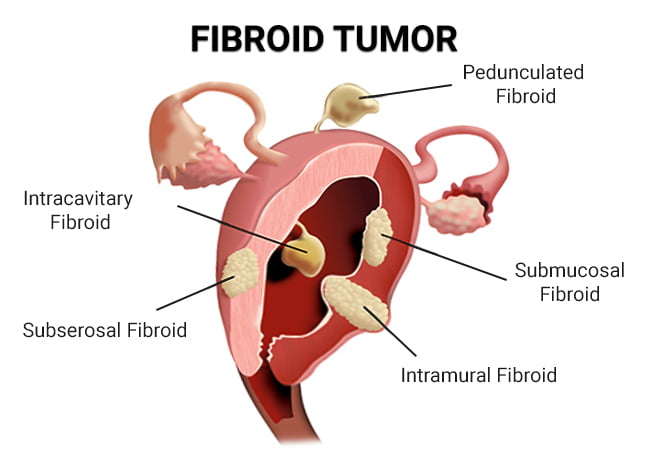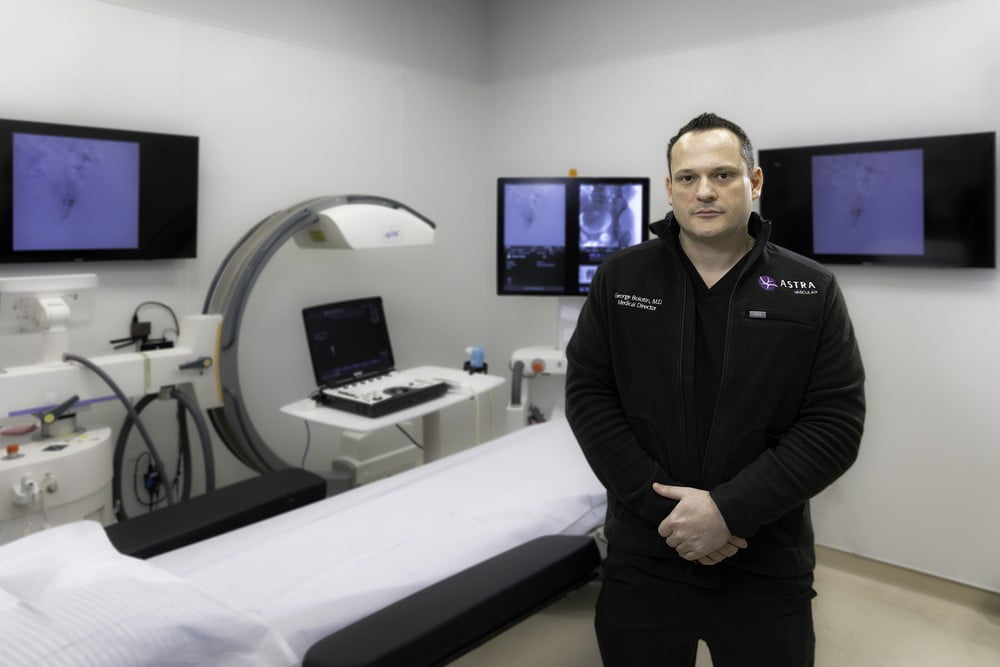
Fibroid cancer, although extremely rare, can cause significant concern for many women. Fibroids are common among women between 30 and 50. They’re node-like growths that form on your uterus and come with an assortment of side effects. What’s uncommon, however, is fibroid cancer. It’s a rare disease that’s usually related to other types of cancer that you may have had. Benign fibroids do not turn into malignant ones. But these fibrous tumors can be very painful, even debilitating for some women, which is why you need expert treatment from a fibroid and vein specialist like Dr. George Bolotin. Call the Astra Fibroid Treatment Specialists in Brooklyn, NY and Bronx, NY if you experience any uncomfortable symptoms in your abdomen. Early detection is always the best course of action.
 A fibroid tumor is a muscular growth that forms on the wall of your uterus, either inside your uterus or outside it, in your abdominal cavity. For some women, just a single tumor forms, but in others, a group of tumors accumulates and grows. The size of the tumors also varies, depending on the individual and how long they’re left untreated. Fibroids can be as small as a seed or as big a grapefruit. The majority of fibroid tumors are non-cancerous or benign. Fewer than one in 1,000 turn out to be malignant.
A fibroid tumor is a muscular growth that forms on the wall of your uterus, either inside your uterus or outside it, in your abdominal cavity. For some women, just a single tumor forms, but in others, a group of tumors accumulates and grows. The size of the tumors also varies, depending on the individual and how long they’re left untreated. Fibroids can be as small as a seed or as big a grapefruit. The majority of fibroid tumors are non-cancerous or benign. Fewer than one in 1,000 turn out to be malignant.
An early diagnosis at the Brooklyn and Bronx-based practice of Astra Fibroid Treatment Specialists determines the most effective treatment for fibroid tumors. Dr. George Bolotin and his team leverage the latest medical technology to find the source of your symptoms. They combat vein problems as well as fibroid conditions by using Interventional Radiology techniques and technologies.
While most women don’t show any symptoms, others suffer a range of debilitating symptoms that can differ. Your symptoms are often based on the location, cause, size and number of the fibroids. Symptoms most commonly associated with fibroids, both malignant and benign, include:
If you notice any of these signs, consult a fibroid specialist immediately for diagnosis. An Interventional Radiologist like Dr. Bolotin uses medical imaging technology, such as ultrasound scans, to determine the nature of your growths and decide on the fibroid tumor treatment options. As with all types of cancer, early detection is your best defense against its spread.

The causes of fibroid tumors are still unknown, although ongoing research points to some probable risk factors, such as:
Dr. Bolotin recommends an MRI, ultrasound, hysterosalpingogram (HSG) or other tests. While determining a diagnosis, he wants to get a better picture of the muscular growths in your uterus. Only after reaching a diagnosis does he recommend fibroid tumor removal or other, less invasive forms of treatment.
Fibroid cancer occurs when cancer cells form in the muscles of your uterus. While doctors haven’t yet conclusively defined the causes of fibroid tumors, fibroid cancers often occur because of x-rays exposure, radiation treatment or complications from breast cancer treatment. Some symptoms of uterine fibroids are like those of fibroid cancer, while others are unique. Symptoms of fibroid cancer include:
Research shows that fibroid cancers don’t develop from an already-existing fibroid, although women at a high risk of fibroids are also at a higher risk of getting uterine cancer. Dr. Bolotin and the Astra Fibroid Treatment Specialists have the expertise and technology to correctly diagnose different fibroid types and conditions, fibroid tumors, and fibroid cancer before commencing treatment.
Treatment for fibroid tumors depends on your age, the severity of your symptoms, the stage of cancer, the number and size of the fibroids, previous fibroids treatments, your general health, and other factors. Treatment options include:

Fibroid tumors affect your life and your ability to conceive. Contact the Astra Fibroid Treatment Specialists in Brooklyn and Bronx for an early diagnosis if you show any symptoms. Get personalized treatment based on the latest medical research and technology for a better quality of life, cancer-free.
Vein & Vascular Medical Care
4209 Ave U, Suite A.
Brooklyn, NY 11234
(347) 934-9068
Vein & Vascular Medical Care
869 E Tremont Ave
Bronx, NY 10460
(929) 447-4563